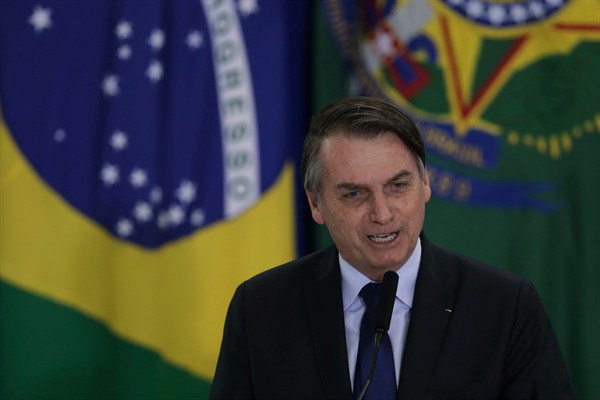Lawmakers in Brazil are expected to begin discussions on a draft proposal to reform the country’s pension system next week. The issue represents a key hurdle for President Jair Bolsonaro, who has pledged to rein in budget deficits and restore investor confidence amid persistent signs of weakness in the Brazilian economy. In an interview with WPR, Peter Kingstone, a professor of politics and development at King’s College London, discusses the thorny political issues surrounding pension reform in Brazil.
World Politics Review: Why is pension reform seen as so important in Brazil? How dire are the country’s financial straits?
Peter Kingstone: Brazil’s central economic challenge historically has been to promote growth while maintaining macroeconomic stability. There have been some periods when it enjoyed both good growth and low inflation, but the dangers of debt, deficits and inflation are always lurking, and the pension system has been one of the key sources of fiscal imbalances.

